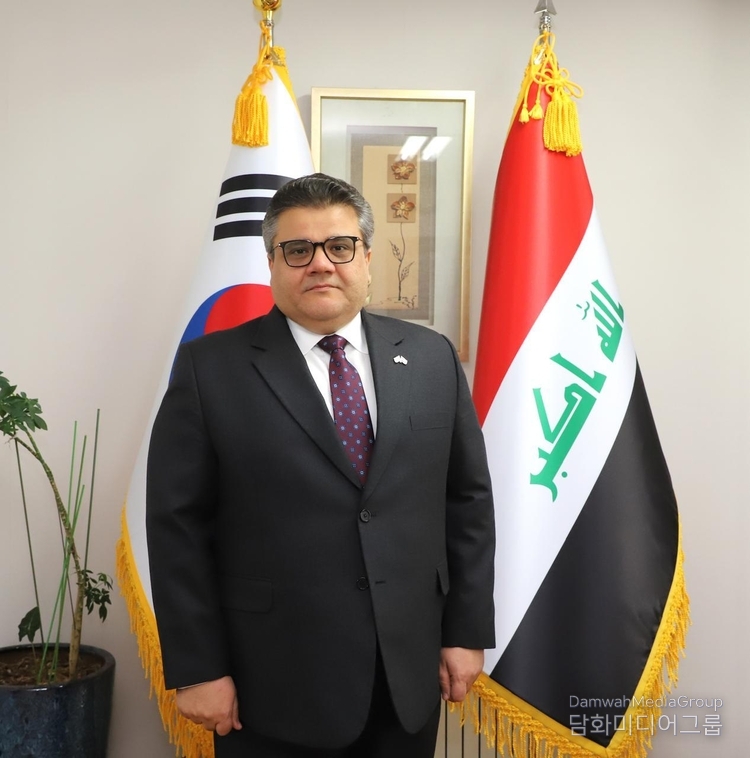By Diplomacy Journal Lee Kap-soo
The following article was contributed by Dr. Mohammed Mustafa Juma Almuntafeky, Head of Mission of the Embassy of the Republic of Iraq in Seoul, to Diplomacy Journal for publication. –Ed.
The Iraqi economy has witnessed significant and remarkable improvements over the past few years. According to the latest international economic indicators, Iraq has entered a new phase of recovery and growth, amid significant transformations that reflect a tangible improvement in economic performance and enhance confidence in the national economy among local and international investors.

This improvement comes amid an economic policy characterized by openness and balanced planning to address challenges and stimulate sustainable development.
Increased non-oil revenues and improved financial performance
In a remarkable development, Iraq's non-oil sector recorded unprecedented growth during 2024. Non-oil revenues increased by 198% during the first nine months of the year, reaching $10 billion, compared to $3.5 billion during the same period in 2023.
These revenues constitute 12.1% of the state’s total revenues, and this is a clear indication of diversifying sources of income and improving the efficiency of financial management.

Decline in inflation rates and recovery of the financial market
Also, the annual inflation rate declined to 2.8% in the fourth quarter of 2024, compared to 4% for the same period in 2023. This decline is a positive indicator of price stability and improved purchasing power for citizens, enhancing economic confidence in the country.
In the same context, the Iraqi financial market showed a remarkable recovery, with the ISX60 index rising by 20.23%, reflecting increased investor confidence and an expanding market player base.
The International Monetary Fund confirms the improvement in economic indicators
Within the framework of coordination between Iraq and the International Monetary Fund, recent reports issued by the Fund confirmed the improved economic indicators in the Iraqi economy, including the stability of financial policies, increasing growth rates, and the expansion of foreign investments. This coincides with ongoing efforts to reform the banking system and create a supportive legal environment for investment.

Growing Foreign Investment and Expanding International Partnerships
Foreign investment in Iraq has reached $88 billion, which is a strong indication of growing international investor confidence in the Iraqi economy. Baghdad is also continuing dialogue with several international companies to facilitate the implementation of strategic projects, including the "Development Road" project, which connects Iraq to Europe via Turkey, at an estimated cost of $17 billion.
In an ambitious initiative, Iraq has allocated $100 billion over three years to implement large scale infrastructure projects, opening new horizons for international companies to contribute to Iraq's reconstruction and development.
Looking to the Future
All these indicators reflect a new economic reality in Iraq, characterized by growth, financial stability, expanding revenue base, decrease in inflation rates, and strengthening of the investment environment.
According to the International Monetary Fund, the Iraqi economy is expected to grow by 3.6% in 2025, providing additional incentive for international investors to view Iraq as a promising economic partner in the Middle East.







